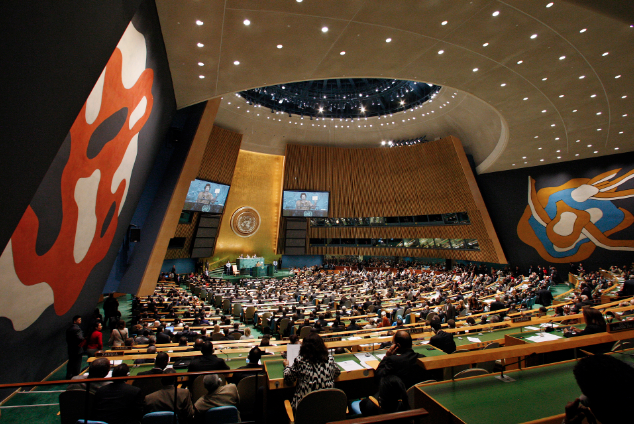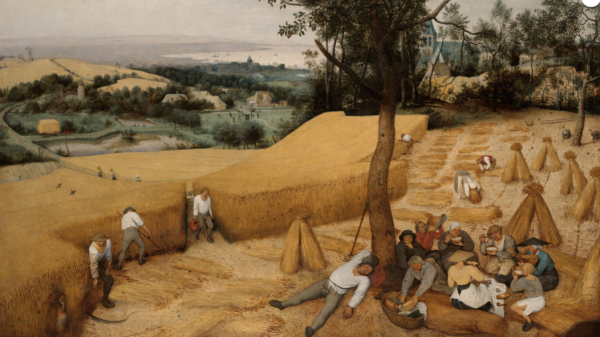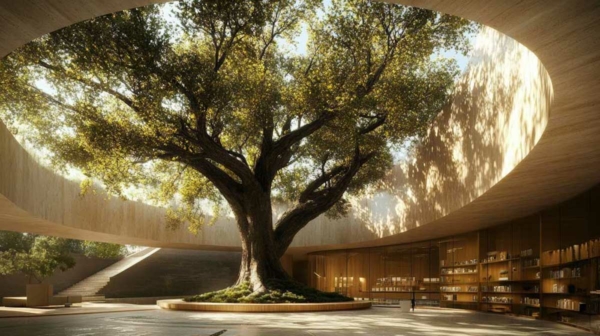
Ce que les images révèlent – CENTQUATRE-PARIS × CEA
Le CENTQUATRE-PARIS accueille, en collaboration avec le CEA, une après-midi exceptionnelle explorant la manière dont les images façonnent notre compréhension…

Special Thematic Debate of the United Nations General Assembly
“Culture and sustainable development in the post 2015 development agenda”
5 May 2014
Trusteeship Council, United Nations Headquarters, New York
In December 2013, the United Nations General Assembly adopted the Resolution on Culture and Sustainable Development A/RES/68/223 which “requests the President of the General Assembly to hold a one-day special thematic debate at the highest political level possible, within existing resources, by the end of 2014, to give due consideration to the role of culture and sustainable development in the elaboration of the post-2015 development agenda, and to present a chair’s summary of the debate”.
This resolution builds on two previous resolutions, adopted in 2010 (A/RES/65/166) and 2011 (A/RES/66/208) respectively, and represents an important breakthrough for culture in the development agenda and the linkages with the three pillars of sustainable development. It also acknowledges that culture contributes to inclusive economic development, as cultural heritage, cultural and creative industries, sustainable cultural tourism and cultural infrastructure are sources of income generation and job creation, including at the community level, thus improving living conditions and fostering community-based economic growth, and contribute to empowering individuals.
Culture also contributes to inclusive social development for all, including local communities and indigenous peoples, with respect for cultural diversity, safeguarding of the cultural and natural heritage, fostering of cultural institutions and strengthening of cultural and creative industries; it also contributes to environmental sustainability, since the protection of cultural and biological diversity and the natural heritage is crucial to sustainable development, while supporting traditional systems of environmental protection and resource management can contribute to the increased sustainability of fragile ecosystems and the preservation and sustainable use of biodiversity, reducing land degradation and mitigating the effects of climate change. The UN General Assembly further acknowledges that culture contributes to peace and security, as a valuable resource for empowering communities to participate fully in social and cultural life, facilitating inclusive governance and dialogue at the national, regional and international levels and contributing to conflict prevention and resolution, as well as to reconciliation and recovery.
Beyond these milestone statements, the UN General Assembly encourages all Member States and other relevant stakeholders to give due consideration to culture and sustainable development in the elaboration of the post-2015 development agenda.
The consensus reached by Member States builds on a number of key milestones which have taken place in 2013 and that have rallied increasing support within the international community. In May 2013, the Hangzhou International Congress (China) gathered some 500 experts and adopted the Hangzhou Declaration, which recommends that culture be included as part of the post-2015 UN development agenda, to be based on heritage, diversity, creativity and the transmission of knowledge. In June 2013, the UN General Assembly Thematic Debate on “Culture and Development” held at UN Headquarters (New York) benefitted from interventions Member States, who stressed the role of culture in achieving development goals. In July 2013, the ECOSOC Annual Ministerial Review was dedicated to “Science, technology and innovation, and the potential of culture, for promoting sustainable development and achieving the Millennium Development Goals” (Geneva) reiterated the same message. In parallel, the Open Working Group of the General Assembly on Sustainable Development Goals dealt with culture during its 4th meeting in June 2013, while Member States proposed to establish a Group of Friends on Culture and Development that was launched in September 2013.
Objective
Building upon the deliberations undertaken by Member States and experts in the above-mentioned fora, the Special Thematic Debate will provide a platform for participants to discuss the role of culture for sustainable development in the elaboration of the post-2015 development agenda, by addressing key issues such as:
Format and Outcome
Participants
The thematic debate will include participation of Member States at the highest possible level, Observers, UN Agencies and representatives of civil society, private sector, and other relevant stakeholders. Permanent Missions are invited to express to the President of the UN General Assembly their interest in co-chairing the interactive panel discussion.
Additional details of this special thematic debate, including its programme, will be communicated at a later stage.
Le CENTQUATRE-PARIS accueille, en collaboration avec le CEA, une après-midi exceptionnelle explorant la manière dont les images façonnent notre compréhension…
Le Collegium Helveticum accueille Tim Ingold pour une conférence exceptionnelle proposant de repenser la place de l’humain face aux crises…
Face à l’urgence climatique, les musées sont de plus en plus nombreux à vouloir agir — sans toujours savoir par…

